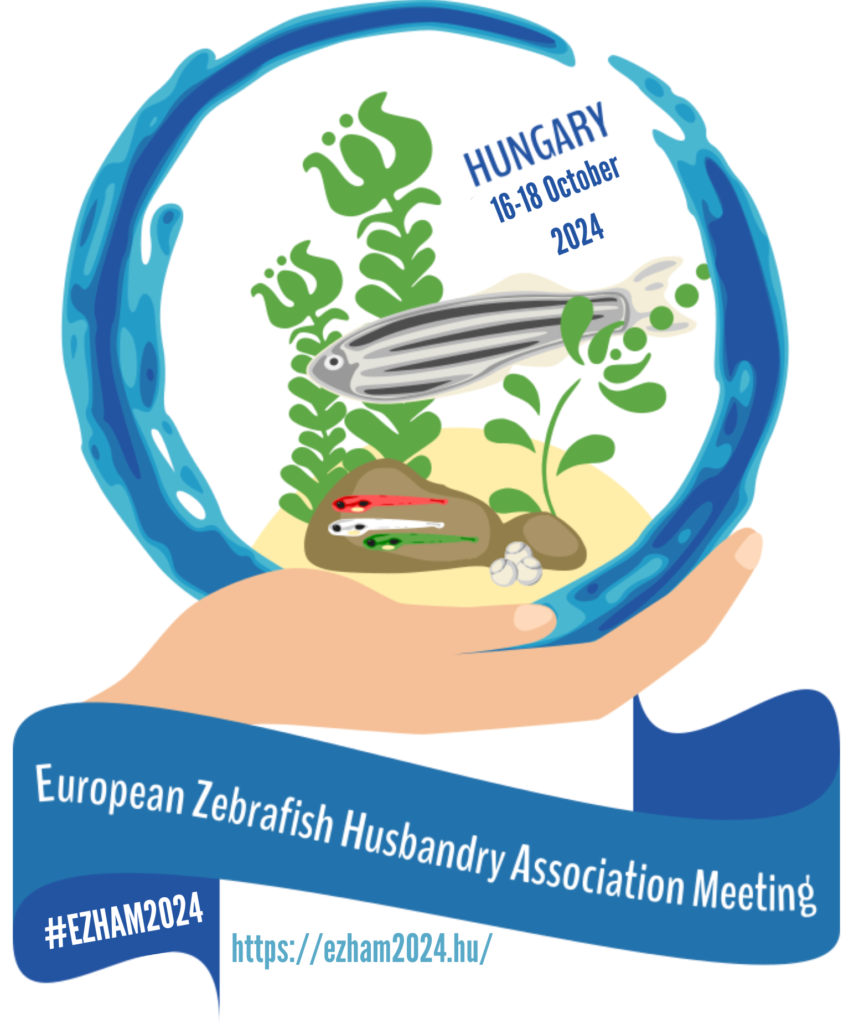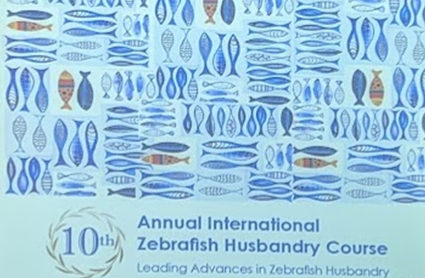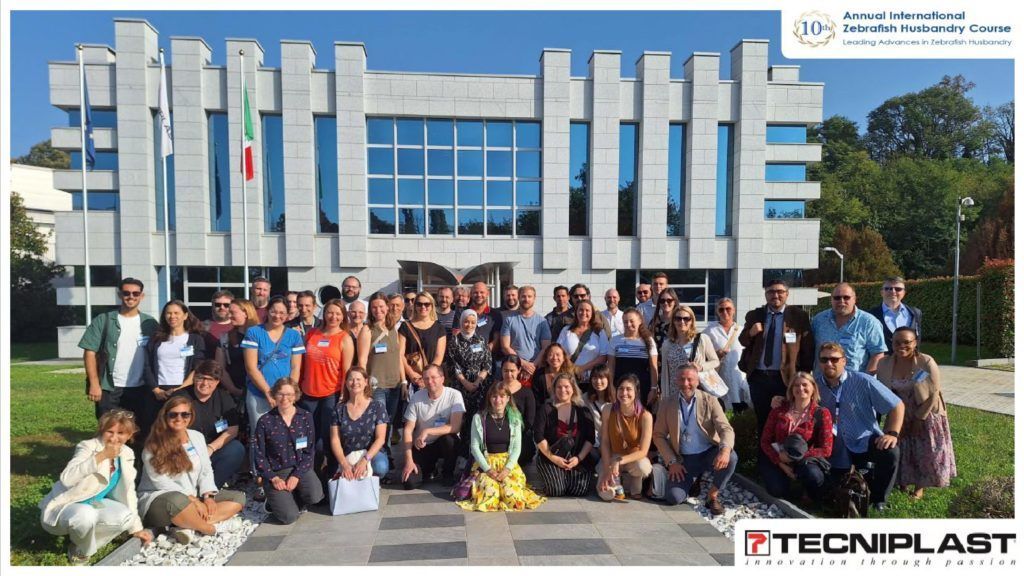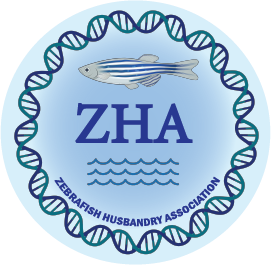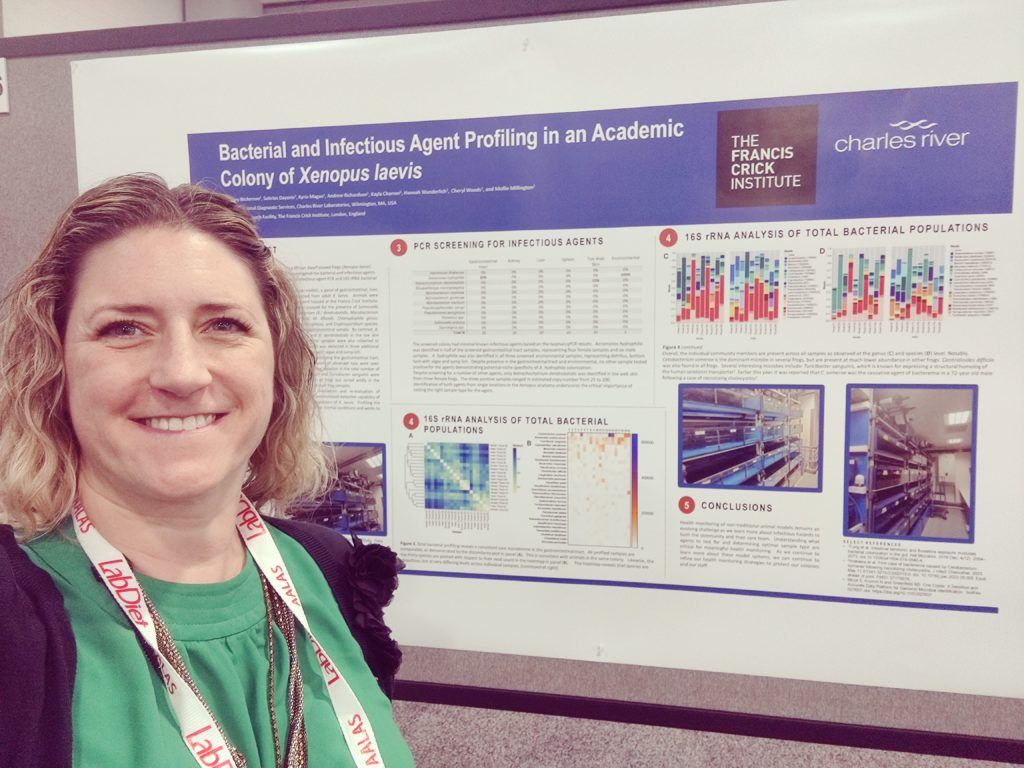Inside the Tank: A Peek into the Tecniplast Annual International Zebrafish Husbandry Course, 2023 Part II/III
Top Tips from the Expert Speakers
Tecniplast has put together a great team of speakers, who are very knowledgeable in the field of zebrafish husbandry, and who have an amazing wealth of experience in their roles. Not only that, but they clearly love what they do, and it was great to have the opportunity to learn from them both during their lectures and during the social time of the course as well.
“…you (are) hearing from some of the best in the field…”
Paul Strachan, University of Edinburgh
Keynote Speaker: Professor Dimitris Beis
Dimitris is an associate professor of biochemistry at the Faculty of Medicine, University of Ioannina, and delivered the keynote speech for the 10th International Zebrafish Husbandry Course. Dimitris addressed the many uses of zebrafish in research, which could fill an entirely new blog post, and did a fantastic job of setting the scene for the rest of the week.
Carrie Barton
The director of Aquatics and Associate Director of Animal Care for the Office of Comparative
Medicine at the University of Utah, and has nearly 25 years of experience working with
research zebrafish colonies. Carrie shared with us her expertise on the procedures and
techniques that can be used with zebrafish, her thoughts on Facility management, Genetic
Colony Management and some insights on refinement in zebrafish.
Carrie’s key points:
- If you are shipping fish to other facilities, declare that they are fish on the packaging.
- Monitor and review the use of SOPs to stop protocol drift.
- Use of QR codes, maps, visual aids and signs and quick reference sheets around the
facility to help users. - A systematic approach to managing space is important for animal welfare, time
management, productivity and minimizing user conflict.
Karin Finger-Baier
Karin began her career with zebrafish in Tubingen as a student assistant at the Max-Plank-
Institute for Developmental Biology in the Department of Pro. Christiane Nusslein-Volhard.
Karin began by introducing us to Water Quality fundamentals and discussing her views on
zebrafish anesthesia, euthanasia and pain management. She also discussed the role of
biofilms in our facilities and some ideas of ways to do enrichment with zebrafish.
Karin’s words of wisdom: - Zebrafish can tolerate large changes in water quality, but they do not tolerate sharp
changes - Biofilms have a role in pathogen transfer.
- Don’t forget wildtypes when considering genetic colony management, avoid sibling
mating and regularly import new stock. - Quality assess each clutch of embryos every day to make sure the healthiest
clutches are used.
Bruce Newel
Bruce has been a professional aquarist for 30 years and has been operating a research
colony of zebrafish for Deakin University, Melbourne, Australia, since 2008. Bruce shared
with us his expert opinions on the natural history of zebrafish, health monitoring, facility
planning, disaster planning and emergency responses and trouble shooting.
Bruce’s main points: - Understanding the natural behaviour of zebrafish is a useful tool for optimising their
welfare in a laboratory setting. - It’s important to invest in staff and make sure that they know what a zebrafish looks
like when it is healthy and sick, and factor the time needed to do an in-depth welfare
check every day into staffing budgets. - Record what you see in terms of sick fish, so that you can see any trends.
- Fecundity monitoring can be an early indicator for issues such as water quality,
nutrition, light pollution and disease - Use a variety of different testing methods and a variety of samples for evaluation of
diseases present in your environment.
Wilson Pinto
Wilson has a PhD in Aquaculture and is a researcher and product developer at PAROS Lda
for over ten years. He joined us in Italy to talk to us about the zebrafish dry diet, and the
work that SPAROS have been doing to optimise the zebrafish diet.
Wilsons’s take-home message: - Growth is not necessarily an indicator of larval health.
- Live prey feed has variable nutritional composition which can affect the metabolism
and gene expression of the fish.
Justin Sanders
Justin’s research focus at Oregon state university is an examination between the interplay between host and pathogen and the impact of ecological and evolutionary factors involved in these interactions. He spoke to use about infectious diseases, chronic diseases and research outcomes and health monitoring in zebrafish.
Justin’s key insights: - Zebrafish are very susceptible to stress through water conditions and environmental
changes including vibration and light. Low stress is necessary for routine life
functions including growth and development. - Zebrafish show an increase in cortisol levels after short term air exposure.
- Colony management is a useful tool for disease control.
- Pathogens are not homogeneously distributed – the vast majority of fish in a
population will not be infected, or detection may be inconsistent through time. - A positive environmental sample doesn’t mean that fish are infected.
Lauren Pandolfo
Lauren is the Zebrafish Genetics Research Core Director and Zebrafish Operations Manager
at Baylor College of Medicine and is heavily involved in zebrafish communities as a subject
matter expert and consultant on topics such as Aquaria and lab design and guidelines and
regulatory compliance. Lauren spoke very engagingly on disease management, live diet,
larviculture, spawning and reproduction, personnel management, setting and validating
standards and Recirculating Aquaculture System: basis of good design.
Lauren’s key messages: - Facility design and colony management are key factors in disease management and
control. - Eggs experience the environment as soon as they are laid, so animal care starts right
from the very beginning. - Water quality stability is key to scientific rigour and reproducibility.
- Olfactory cues are important for reproductive success, keeping them separately can
suppress interest in reproduction. - Rotate spawning every 6 days: females need time to build up healthy eggs and clutch size is positively correlated with inter-spawning intervals.
Lauren kept up the learning well into the evenings by challenging us to create zebrafish with specific body scores out of our glasses at dinner. Can you work out which body score these two zebrafish have?
Michael Barret
Michael is the head of Technical Development at Biosystems and Tropical Marine Centre,
specializing in lighting and the biology of light. Michael joined us to share the importance of
lighting in a zebrafish facility, and the use of lighting to improve zebrafish welfare.
Michaels key points:
- Fish see differently to us, they see light lower on the spectrum than us. mostly blues,
greens and UV light. An LED bulb for use in a fish room wastes some energy as the
fish can’t see it. TMC is targeting UV in a light made specifically for zebrafish,
optimizing it for prey capture.
The speakers were engaging and very knowledgeable and keen to help the course
participants in any way that they can, so thank you very much to all of them for sharing their
experiences and advancements.

